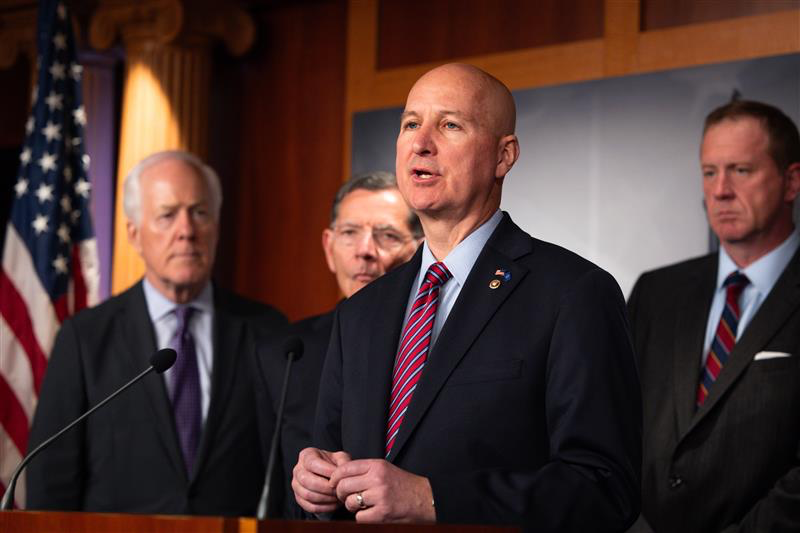California's EV Mandate: Automakers' Strong Opposition

Table of Contents
High Production Costs and Infrastructure Limitations
The transition to electric vehicles presents significant hurdles related to production costs and the supporting infrastructure. Automakers argue that the current state of technology and infrastructure makes meeting California's aggressive EV mandate unrealistic in the short term.
Battery Production Bottlenecks
One of the most significant challenges is the production of EV batteries. The demand for rare earth minerals used in battery production is far outpacing the current supply, leading to increased costs and long lead times. This bottleneck is further exacerbated by geopolitical instability in regions that control the supply of these critical minerals.
- Increased costs of raw materials: The price volatility of lithium, cobalt, and nickel significantly impacts the final cost of EV batteries.
- Long lead times for battery components: The complex manufacturing process and global supply chains contribute to significant delays in securing the necessary components for battery production.
- Geopolitical instability impacting supply chains: Political tensions and disruptions in key mineral-producing regions can severely impact the availability and cost of battery materials.
Scaling up battery production to meet the aggressive timeline of the California EV mandate requires massive investment and technological breakthroughs, which are not currently in place.
Inadequate Charging Infrastructure
The lack of a robust and widespread charging infrastructure, especially outside of major metropolitan areas, presents another significant obstacle to mass EV adoption. This infrastructure deficit is particularly acute in rural areas and underserved communities.
- Insufficient number of public charging stations: The current density of public charging stations is inadequate to support the projected increase in EVs on the road.
- Uneven distribution of charging networks: Charging stations are concentrated in urban areas, leaving rural drivers with limited options.
- Limited access to home charging for apartment dwellers: Many apartment residents lack the necessary infrastructure to charge their EVs at home, relying instead on scarce public charging options.
Significant investment in expanding the charging network, including fast-charging stations and home charging solutions, is critical to support the widespread adoption of EVs and alleviate range anxiety.
Consumer Demand and Affordability Concerns
Beyond the challenges faced by automakers in producing EVs, significant consumer-related obstacles hinder the rapid transition. The high cost of EVs and lingering concerns about range and charging time are key factors.
High Purchase Prices of EVs
Electric vehicles currently command significantly higher purchase prices compared to their gasoline-powered counterparts. This price disparity makes EVs inaccessible to a large segment of the population, particularly low-income consumers.
- Lack of affordable EV models: The market lacks a sufficient number of affordable EVs that compete with the price points of gasoline cars.
- Government incentives not sufficient to offset high costs: While government incentives, like tax credits, exist, they often do not fully compensate for the higher initial purchase price of an EV.
- Impact on low-income consumers: The high cost of EVs effectively excludes many low-income consumers from participating in the transition to electric mobility.
Range Anxiety and Charging Time
Consumer concerns surrounding range anxiety and charging times remain significant barriers to broader EV adoption. The limited driving range of many EVs and the longer charging times compared to refueling a gasoline car deter potential buyers.
- Anxiety about running out of charge: Concerns about being stranded due to a depleted battery are a common deterrent.
- Inconvenience of longer charging times: Charging an EV often takes significantly longer than filling a gas tank, causing inconvenience for drivers.
- Lack of fast-charging stations in many areas: The limited availability of fast-charging stations further exacerbates the charging time issue.
Advancements in battery technology, such as increased energy density and faster charging capabilities, along with continued expansion of the charging infrastructure, are necessary to address these concerns.
Legal Challenges and Political Opposition
The California EV mandate faces significant legal and political opposition, further complicating its implementation. Automakers have launched legal challenges, and lobbying efforts are underway to modify or delay the mandate.
Legal Battles Against the Mandate
Several automakers have filed lawsuits against the California EV mandate, arguing that the aggressive timeline is unrealistic and potentially illegal. These legal battles challenge the enforceability of the mandate and the state's authority to impose such stringent regulations.
- Arguments against the mandate's enforceability: Automakers argue that the mandate's requirements cannot be met given current technological and infrastructural limitations.
- Claims of economic hardship: The automakers claim that meeting the mandate's requirements would cause significant economic hardship for the industry.
- Challenges to the state's authority: Legal challenges question California's authority to impose such strict regulations on the automotive industry.
Lobbying Efforts and Political Pressure
Powerful automotive lobbying groups are actively working to influence the political landscape surrounding the California EV mandate. These efforts include substantial contributions to political campaigns and aggressive lobbying efforts aimed at state legislators.
- Contributions to political campaigns: Automotive lobbying groups contribute significantly to political campaigns to influence the election of supportive candidates.
- Lobbying efforts targeting state legislators: Intensive lobbying efforts are directed at state legislators to weaken or delay the implementation of the mandate.
- Public relations campaigns to influence public opinion: Public relations campaigns are used to shape public perception of the EV mandate and its potential impacts.
The political dynamics surrounding the California EV mandate are complex, highlighting the influence of powerful interest groups in shaping environmental policy.
Conclusion
California's EV mandate represents a bold but complex attempt to accelerate the transition to electric vehicles. The strong opposition from automakers, stemming from high production costs, consumer concerns, and legal challenges, highlights the significant hurdles in achieving this ambitious goal. While the transition to EVs is crucial for environmental sustainability, a more balanced approach considering both technological feasibility and economic realities is necessary. Addressing the concerns raised by automakers and fostering collaboration between the government, industry, and consumers will be essential for the successful implementation of California’s EV mandate and the broader adoption of electric vehicles. Further research and discussion on the various aspects of California's EV mandate are crucial for developing sustainable and effective solutions for the future of transportation. Understanding the nuances of California's EV mandate is vital for navigating this crucial period in the automotive industry.

Featured Posts
-
 I A Stasi Xairetismon Sta Ierosolyma Istoria Simasia Kai Paradoseis
May 19, 2025
I A Stasi Xairetismon Sta Ierosolyma Istoria Simasia Kai Paradoseis
May 19, 2025 -
 Comesana Avanza En El Atp 500 De Hamburgo
May 19, 2025
Comesana Avanza En El Atp 500 De Hamburgo
May 19, 2025 -
 Spring Budget Update Public Sentiment And Government Plans
May 19, 2025
Spring Budget Update Public Sentiment And Government Plans
May 19, 2025 -
 The Impact Of Paige Bueckers On The Dallas Wings And The Wnba
May 19, 2025
The Impact Of Paige Bueckers On The Dallas Wings And The Wnba
May 19, 2025 -
 Ufc Vegas 106 Last Minute Cancellation Of Craig Vs Bellato
May 19, 2025
Ufc Vegas 106 Last Minute Cancellation Of Craig Vs Bellato
May 19, 2025
